20+ Years Experience
Specialist Cocaine Rehab

Are you or a loved one struggling with addiction? Have you tried traditional methods and found them lacking?
Holistic addiction treatment recovery might be the answer you’re looking for. This comprehensive approach to healing addresses the mind, body, and spirit, providing a well-rounded path to recovery.
In this blog post, you’ll learn about the essence of holistic treatment, various approaches, and how they can complement traditional methods to help you or your loved one regain control of their life.
Holistic addiction treatment is a comprehensive approach to healing, addressing the mind, body and spiritual wellbeing.
Integrating holistic treatments with traditional therapies creates a balanced path to recovery.

Complementary approaches such as acupuncture, yoga and meditation can provide additional support for individuals in recovery.
Holistic addiction treatment is grounded in the belief that an individual is more than just their symptoms or behaviours.
Instead, it focuses on the whole person, taking into account their physical, mental, and spiritual well-being.
This comprehensive approach to healing addresses the root causes of addiction, rather than simply treating the symptoms, providing a well-rounded path to recovery.
The essence of holistic treatment lies in addressing three aspects—mind, body, and spirit—to provide a balanced and effective approach to overcoming addiction.
Certain holistic therapies, such as acupuncture, yoga, and art therapy, work in conjunction with more traditional addiction treatment methods, like counselling and medical support, to help individuals overcome their addiction and maintain recovery.
Integrating holistic treatments with traditional therapies has shown to be effective in addressing the physical, mental, and spiritual health aspects of addiction, ultimately improving the overall well-being of the individual.
Addressing the emotional and psychological aspects of addiction is a crucial component of holistic treatment.
Mental health counselling plays a significant role in helping individuals understand the root causes of their addiction, develop healthier coping mechanisms, and work through emotional issues that may contribute to their substance abuse.
An integral part of many holistic treatment programs is mindfulness meditation, which has been shown to provide numerous benefits in addiction recovery.
Through regular practice, mindfulness meditation can help individuals develop greater self-awareness, manage stress more effectively, and improve mental clarity, contributing to a more balanced and healthy state of mind during the recovery process.
Nutritional therapy and physical health are essential components of a holistic treatment plan, as they promote overall well-being and address the physical consequences of addiction.
A balanced diet and regular exercise can help improve energy levels, support the immune system, and aid in the healing process during recovery.
Moreover, physical health problems associated with addiction, such as malnourishment, dehydration, and obesity, can be addressed through proper nutrition and exercise, further supporting the recovery process.
Mindful fitness, which includes practices like tai chi and yoga, is often incorporated into holistic treatment programs.
These disciplines can help individuals in recovery develop greater physical strength, flexibility, and balance, while also providing mental health benefits.
Research has shown that practising mindful fitness can ease the transition to a substance-free lifestyle after rehab, making it a valuable component of holistic treatment.
Spiritual practices and connection play a vital role in holistic treatment, as they can help individuals find inner strength, purpose, and a sense of belonging during their recovery journey.
By nurturing spiritual wellbeing, holistic therapy can provide a solid foundation for lasting recovery and personal growth.
Examples of spiritual practices used in holistic substance abuse treatment include prayer, meditation, yoga, and mindfulness, as well as activities that promote connection with nature and others.
These practices can foster inner peace, self-awareness, and emotional resilience, all of which are essential for maintaining recovery and overall well-being.
There are various holistic approaches that can be utilized in addiction recovery, each targeting different aspects of the individual’s well-being.
Some common holistic treatments include acupuncture, yoga, meditation, and art.
Each of these approaches offers unique benefits, but they all share the common goal of providing a well-rounded and comprehensive path to recovery.
By incorporating these holistic approaches into an addiction treatment plan, individuals can address the physical, mental, and spiritual aspects of their recovery, ensuring a more balanced and effective approach to overcoming addiction.
When combined with traditional methods like counselling and medical support, holistic therapies can provide a powerful and comprehensive approach to addiction recovery.
Acupuncture is an ancient Chinese healing practice that involves the insertion of thin needles into specific points on the body to stimulate energy flow and promote healing.
In the context of addiction recovery, acupuncture has been shown to help alleviate withdrawal symptoms and promote relaxation.
This can be particularly beneficial during the early stages of recovery when withdrawal symptoms can be most severe and distressing.
By helping to reduce stress levels and induce relaxation, acupuncture can be a valuable addition to a holistic treatment plan for addiction recovery.
This approach can be particularly beneficial when used in conjunction with other holistic therapies, such as yoga and meditation, as well as traditional treatment methods like counselling and medical support.

Yoga and meditation are powerful tools for promoting mental clarity, reducing stress, and enhancing emotional stability during addiction recovery.
Both practices involve focused attention, deep breathing, and body awareness, which can help individuals develop greater self-awareness and resilience in the face of life’s challenges.
In addition to their mental health benefits, yoga and meditation can also improve physical health and well-being.
Regular practice can increase strength, flexibility, and balance, while also promoting relaxation and stress reduction.
By incorporating yoga and meditation into a holistic treatment plan, individuals in recovery can develop a strong foundation of mental and physical well-being to support their ongoing recovery journey.
Art and music therapy provide creative outlets for self-expression and emotional healing during addiction recovery.
These therapies can help individuals explore and express their emotions in a safe and supportive environment, which can be particularly beneficial for those who may struggle with verbal communication or have difficulty accessing their feelings.
Examples of holistic activities include painting, drawing, sculpting, music composition, songwriting, and playing musical instruments.
By engaging in these creative pursuits, individuals in recovery can develop new coping skills, reduce feelings of isolation and loneliness, and experience a sense of accomplishment and purpose.
This, in turn, can support their ongoing recovery journey and overall well-being.
Holistic treatments, including holistic psychotherapy, can be integrated with traditional addiction treatment methods to create a well-rounded and comprehensive recovery plan.
This approach combines the benefits of holistic therapies, such as acupuncture, yoga, and art, with the evidence-based approaches of traditional treatments like counselling and medical support.
By incorporating such holistic substance abuse treatment, patients can experience a more personalised and effective recovery journey.
By addressing the underlying issues that contribute to addiction and providing a comprehensive approach to recovery, holistic treatments can help prevent relapse and promote long-term recovery.
Integrating holistic therapies with traditional methods allows individuals to address the physical, mental, and spiritual aspects of their addiction, ultimately improving their overall well-being and quality of life.
Complementary approaches, such as acupuncture, yoga, and meditation, can enhance the effectiveness of traditional addiction treatments by addressing the underlying issues that contribute to substance abuse.
These approaches can provide additional support and guidance for individuals in recovery, helping them develop new coping skills and strategies to manage stress and maintain their sobriety.
Examples of complementary approaches include yoga and meditation for stress reduction, acupuncture for pain management, and art for emotional healing and self-expression.
By incorporating these approaches into a traditional treatment plan, individuals can benefit from a more comprehensive and holistic approach to addiction recovery.
Addressing the underlying issues that contribute to drug addictions, such as cocaine addiction, is a crucial component of holistic treatment.
These issues may include mental health, physical health, and spiritual concerns, all of which can play a role in the development and maintenance of addiction.
By employing holistic treatment approaches that address these underlying issues, holistic treatments can help prevent relapse and promote long-term recovery.
This approach not only focuses on the immediate concerns of addiction but also seeks to address the root causes, providing individuals with the tools and support they need to maintain their sobriety and overall well-being.
Success stories for holistic addiction therapy in treatment centers are extremely common. These stories can be powerful motivators for individuals suffering from substance use disorders.
Hearing about others who have successfully overcome their substance use disorder using a combination of holistic and traditional methods can provide hope and inspiration for those struggling with their own recovery journey.
Examples of successful holistic treatment in action include individuals who have benefited from acupuncture to alleviate withdrawal symptoms, practised yoga and meditation to manage stress and improve mental clarity, and engaged in music and art therapy for emotional healing and self-expression.
These success stories demonstrate the effectiveness of holistic treatment in helping individuals overcome addiction and maintain their recovery.
If you or a loved one are interested in exploring holistic treatment options for addiction recovery, our compassionate and knowledgeable team at Oasis Rehab is here to help.
We can provide you with more information on the various holistic therapies available, as well as how they can be incorporated into a comprehensive treatment plan.
Don’t hesitate to reach out and take the first step towards a healthier, happier, and more fulfilling life free from addiction.
Evidence-based treatments have been proven to be the most successful and effective form of treatment for addiction.
Conventional treatment, such as cognitive-behavioural therapy, contingency management, and 12-step facilitation, provide individuals with the tools and resources they need to navigate a successful recovery journey.
These treatments are designed to help individuals identify and address the underlying causes of their addiction, as well as develop the skills and strategies needed to maintain long-term sobriety. They also have a lot of fun.
The holistic approach to rehabilitation also referred to as the ‘whole person’ approach, focuses on a number of aspects in order to promote a healthy lifestyle.
This includes supporting mental and physical health, as well as other areas of well-being like social, spiritual, and emotional support.
It is a comprehensive approach that views an individual holistically.
Holistic therapies are an integrative approach to recovery that recognizes the physical, emotional, psychological, and spiritual elements of well-being.
By treating these aspects of a person as interdependent, the holistic treatment creates lasting sobriety through improved overall health.

By combining holistic approaches such as yoga, meditation, massage, and nutrition with traditional treatments, the holistic approach offers a unique opportunity to take a whole-person approach to recovery.
Holistic treatment can help support traditional alcohol and drug addiction treatment methods by providing an alternative option for those who may not benefit from traditional treatment alone.
The additional element of mind-body connection promotes positive lifestyle changes that can aid in the recovery process.
Holistic approaches to addiction recovery often include such treatments like acupuncture, yoga, tai chi, meditation, and art.
All of these approaches are aimed at providing the individual with support for their overall well-being while they navigate the recovery process.
These therapies can help reduce stress, improve mental clarity, and provide a sense of connection and purpose.
They can also help to reduce cravings and provide a sense of control over one’s own life.
In summary, holistic addiction treatment recovery provides a comprehensive and well-rounded approach to healing that addresses the mind, body, and spirit.
By integrating holistic therapies with traditional methods, individuals can address the underlying issues that contribute to their addiction and develop a solid foundation for lasting recovery.
With the support of a knowledgeable and compassionate team, like the one at Oasis Rehab, you or your loved one can embark on a path towards a healthier, happier, and more fulfilling life free from addiction.
There are a range of other services that we can provide. Have a look at the list below for more information:


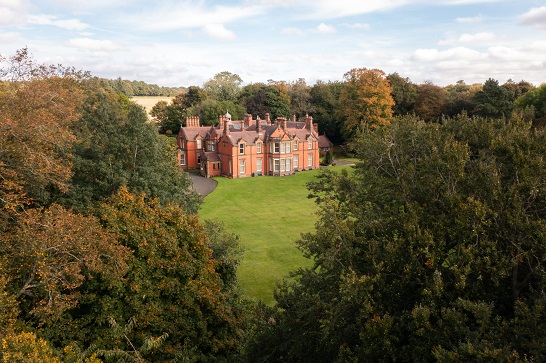





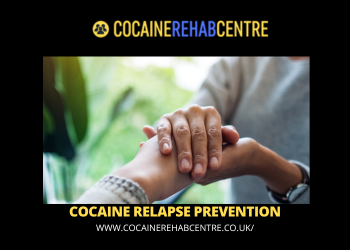
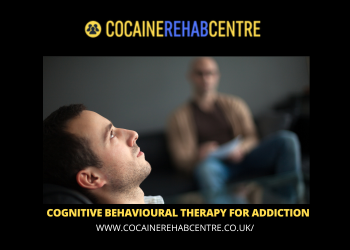





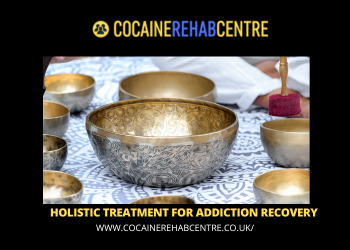




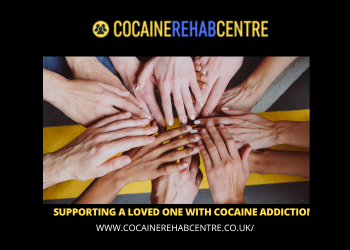

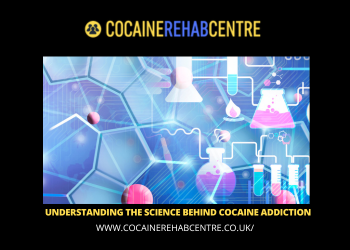


We Aim To Reply To All Enquiries With-in 24-Hours